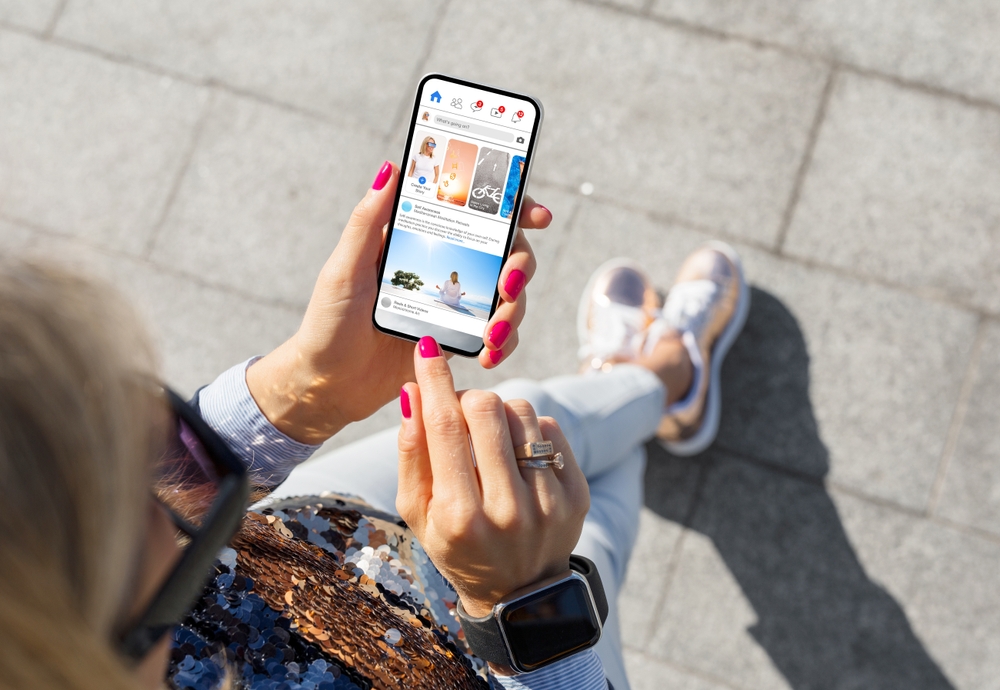People Are Getting Fined for Loud Speakerphone Calls in Public

You’ve been there before: sitting on a train or waiting for your bus, when suddenly the silence fractures. A voice booms into the air not speaking to you, not even speaking to anyone in the room, but to someone miles away on the other end of a phone. Half a conversation, chopped into awkward pauses, laughter that feels out of place, private details broadcast like announcements over a tannoy. It’s the modern soundtrack of public life, and surveys suggest nearly nine in ten people hate it.
Yet what most of us quietly endure, France decided to confront. At a station in Nantes earlier this year, a man named David was fined €200 for refusing to take his call off speakerphone. To some, it was a victory for peace and civility, long overdue. To others, it was an authoritarian overreach, punishing a habit that has become as common as scrolling through TikTok at the checkout line.
The incident may seem small, even trivial, but it sparks a bigger question: when our private lives spill so easily into public spaces, what do we owe one another?
A Snapshot of Modern Frustration
The fine in Nantes was more than a bureaucratic formality it was a flashpoint that revealed just how combustible something as ordinary as a phone call has become in public life. David, a 54-year-old commuter, was speaking with his sister on loudspeaker when a railway security officer approached him. She asked him to switch off the speaker function, warning that if he continued, he would face a €150 penalty. David thought it was a joke. He laughed it off. But when he refused to comply, the officer pulled out her notebook and issued the fine. Because he did not pay immediately, the penalty climbed to €200. David is now contesting it in court.

For many in France, the story landed with a thud of recognition. This wasn’t just about David. It was about every blaring TikTok video on the metro, every phone call overheard in half-sentences on the morning train, every stranger’s playlist that drowns out the hum of shared space. Some commuters cheered the decision as overdue a long-awaited stand for collective peace. Others recoiled, calling it an overreach, a sign that the state was inching into everyday behavior with fines and punishments.
What made the case so striking was its ordinariness. This wasn’t vandalism or violence. It was a man doing what millions of us do daily: letting a private conversation escape into public air. Yet under France’s Transport Code, disturbing the peace of others by noise is enough to trigger enforcement. What might once have earned a glare or a sigh now carried a price tag.
Why Loudspeaker Calls Bother Us More Than We Admit

It isn’t just the volume that makes a speakerphone call unbearable. Psychologists have found that overhearing one side of a conversation is uniquely distracting. Unlike listening to two people talk—where your brain can easily tune out the rhythm of dialogue hearing only half forces the mind to fill in the missing pieces. Our attention is hijacked, not because we want to listen, but because our brains are wired to complete stories. That’s why a single voice on speakerphone can feel more grating than two strangers chatting loudly beside you.
The irritation also goes deeper than manners. The World Health Organization has identified environmental noise as a public health issue, linking chronic exposure to increased stress, disrupted sleep, and even cardiovascular disease. When unwanted sound infiltrates shared spaces, the body treats it as a stressor. Stress hormones like cortisol spike, heart rates climb, and over time, this constant state of agitation chips away at wellbeing. A loud call on a train isn’t just annoying it’s another small weight pressing on the nervous system of everyone forced to endure it.
For some, the impact is even sharper. People with sensory sensitivities, such as those with autism spectrum disorder or hyperacusis (a heightened sensitivity to sound), can find sudden, intrusive noise unbearable. One autistic interviewee once described everyday sound intrusions as “like being tasered.” Unlike the rest of us, they cannot simply sigh, roll their eyes, and push through the discomfort. They are left trapped, overwhelmed, and in many cases excluded from spaces where noise runs unchecked.
How Different Cultures Handle Public Noise

While France’s fines may seem extreme, other nations have been grappling with the same issue in very different ways. The real story here is how societies draw the line between personal freedom and collective peace, and whether that line is enforced by culture, signage, or the law.
In Japan, silence on trains isn’t enforced by penalties but by deeply ingrained etiquette. Passengers are expected to switch phones to “manner mode” and avoid calls altogether. The result is astonishing to outsiders: even during rush hour, packed bullet trains hum with little more than the sound of the rails. Compliance doesn’t come from fear of fines, but from a shared cultural understanding that loud calls are impolite. South Korea takes a similar approach, with public transport signage advising riders to keep phones on vibrate and conversations hushed.
Italy and the United Kingdom rely on formal designations: “Silenzio” carriages on Trenitalia routes and “quiet coaches” on British trains. These zones are meant to be sanctuaries, free from loud calls or music, with staff occasionally stepping in if necessary. The rules carry no heavy punishments, but social pressure pointed looks, polite reminders, even throat clears often ensures compliance. The United States has followed suit with Amtrak’s “quiet cars,” where conductors remind passengers that calls are banned and devices must stay muted. Persistent offenders are asked to move, but fines are never part of the equation.
Portugal and Finland have taken more proactive stances recently. Portugal’s Transport and Mobility Authority began issuing fines of €50 to €250 for “lack of civility” tied to excessive phone noise, while Helsinki’s transit authority rolled out a “peaceful journeys” campaign urging passengers to avoid speakerphone use altogether. Both examples reflect growing frustration, though one leans on penalties while the other relies on persuasion.
France stands out because its enforcement has legal teeth. David’s fine in Nantes wasn’t symbolic it was written into the framework of the Transport Code, giving staff the authority to escalate everyday disruptions into financial penalties. The result is a system where public peace is protected not just by courtesy or peer pressure, but by law.
The Civil Liberties Debate

Proponents of enforcement argue that quiet is not a luxury but a shared right. Just as smoking bans protect lungs and speed limits protect lives, restrictions on noise protect the collective environment. Gareth Bacon, the UK’s Conservative transport secretary, put it bluntly: “Everyone deserves to travel in peace.” From this perspective, fines aren’t about silencing individuals; they’re about drawing a boundary that allows everyone to coexist.
Critics see something more troubling. Civil liberties advocates warn that once ordinary habits can be punished, the door opens to over-policing and arbitrary enforcement. In Australia, for instance, similar “antisocial behavior” laws already exist and they have been shown to fall disproportionately on marginalized groups. Data from New South Wales revealed that Indigenous Australians were more than five times as likely to be stopped and searched as white Australians. Analysis from Victoria found that people of African or Middle Eastern appearance were searched at rates far higher than their share of the population. If fines for noise were added to the mix, campaigners fear they would follow the same patterns of disproportionate targeting.
Lydia Shelly, vice president of the NSW Council for Civil Liberties, argued that social cohesion cannot be legislated into existence. To her, handing governments the power to punish every breach of etiquette carries a chilling edge. As she put it, “You cannot legislate your way to social cohesion.” Instead, she suggests education campaigns, quiet zones, and staff reminders as more balanced tools for addressing noise without risking Orwellian overreach.
Etiquette and Evolving Norms in the Smartphone Age

The smartphone didn’t just change how we communicate it changed where our conversations happen. Once, a phone call meant stepping aside, finding a payphone, or at least lowering your voice out of courtesy. Today, conversations spill into every café, bus, and train carriage, carried on speakerphone as if private dialogue were public performance. What used to be rare now feels ordinary, and etiquette has struggled to keep up.
Guides to modern manners have been sounding alarms for years. Debrett’s, Britain’s long-trusted authority on etiquette, bluntly advises: “If you’re making a video call in a public space, you must use headphones or earbuds.” Lizzie Post, great-great-granddaughter of etiquette icon Emily Post, goes further: “Do not use speakerphone for calls in public use headphones.” These reminders highlight a simple truth: nobody should be forced to become an unwilling eavesdropper. The half-heard fragments of someone else’s conversation are not just distracting they’re intrusive.
And yet, despite this guidance, online communities reveal how common the breach has become. A Reddit thread asking “What do you secretly judge people for?” drew over 13,000 upvotes for the answer: “Watching TikToks loud in a quiet room without headphones.” It’s a modern grievance that cuts across age, culture, and geography. The very device designed to connect us often ends up isolating us from those physically around us.
Part of the problem is speed. Technology advanced faster than our social norms could adapt. Streaming video, voice notes, and video calls were unimaginable when most etiquette rules were first written. We now find ourselves negotiating, in real time, how much of our digital lives belong in public air. For many, the rule of thumb remains simple: your convenience should not come at the cost of someone else’s peace.
Silence as Compassion
The fine in Nantes may fade from headlines, but the questions it raised are not going away. Our devices are only getting louder, brighter, and more demanding, and with them comes the risk of forgetting that public space is not just an extension of our private living rooms. Shared silence is not a trivial comfort it is a form of respect, a fragile social glue that allows strangers to coexist without friction.
Science confirms what spiritual traditions have known for centuries: constant noise agitates the body, while moments of quiet restore balance. A train carriage without speakerphone calls isn’t just easier on the ears it is easier on the nervous system, on attention, on the collective capacity to breathe calmly together. Choosing to use headphones or lower our voices is more than etiquette. It is a way of practicing compassion in the most ordinary of places.
The story of a French commuter fined for his loud call is really a mirror held up to us all. It asks whether we are willing to trade a sliver of convenience for the comfort of the collective. It challenges us to rethink what we owe one another in the liminal spaces of modern life: the train stations, buses, cafés, and waiting rooms where our lives overlap.
In the end, the decision to keep a call private is not about fines, laws, or even etiquette. It is about remembering that our presence is never neutral. Every sound we release into public space ripples outward, shaping the unseen atmosphere we share. And in a world already overflowing with noise, perhaps the simplest gift we can offer is silence.
Loading...

